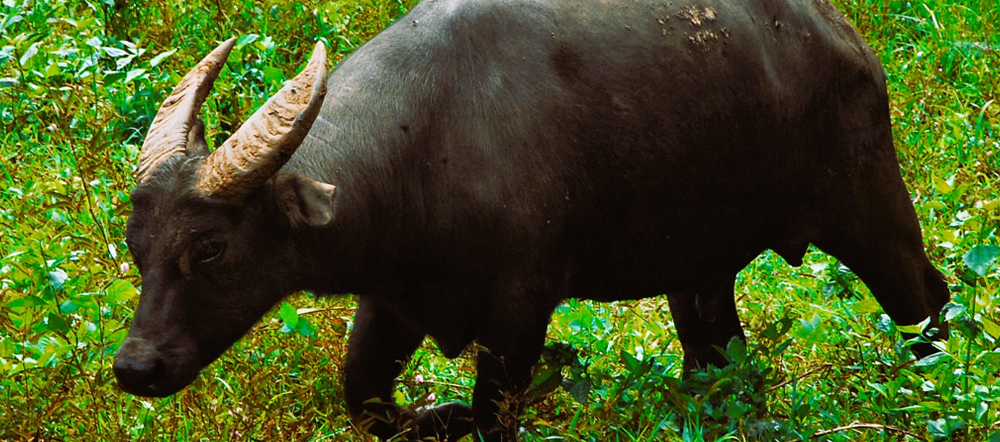Bubalus Mindorensis, the Tamaraw or dwarf buffalo endemic to Mindoro, where only about 500 to 600 individuals remain (Photo by Gregg Yan/LaDez)
Toyota Motor Philippines Foundation (TMPF), the social and humanitarian arm of Toyota Motor Philippines Corp (TMP), has just signed a memorandum of understanding (MOU) with the Department of Environment and Natural Resources (DENR) to support the Tamaraw Conservation Program (TCP). The planned partnership will address Philippine biodiversity conservation efforts towards protecting the critically endangered Tamaraw species and its habitat.
Under the MOU, TMPF will donate a brand new Tamaraw vehicle and P500,000 worth of “Bantay Tamaraw” kits for ranger gears and supplies. The resources will help the Bantay Tamaraw rangers conduct regular patrols at all known Tamaraw sites.
On top of in-kind donations, TMPF pledges a P3-million conservation fund for other key program initiatives, including Tamaraw habitat monitoring and research, support programs for barangay and indigenous peoples (IP) volunteers, equipping of the Tamaraw Research and Conservation Center, and other communication, education, and public awareness (CEPA) activities such as the national Tamaraw Month observation.
The signing ceremony was led by DENR Secretary Maria Antonia Yulo Loyzaga, TMP President Masando Hashimoto, and TMPF President Jose Maria Aligada on the sidelines of the Next Generation Tamaraw grand public launch in Makati City.
The TCP was created on July 9, 1979, pursuant to Executive Order No. 544 under the Office of the President, as the government’s arm in protecting the Tamaraw. In 1987, it became a banner initiative under the DENR. The program aims to save the animal from extinction by addressing the various factors threatening its population and habitat.
The Tamaraw, or Bubalus mindorensis, is a dwarf buffalo endemic to the Mindoro Island in the Philippines. It was classified by the International Union for Conservation of Nature (IUCN) as critically endangered with 500-600 individuals remaining in the wild as of 2024.
